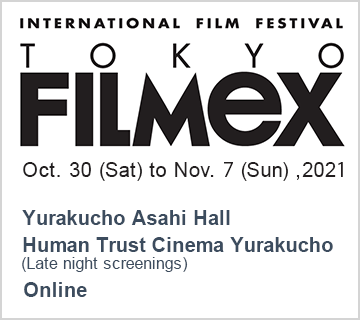Members of the International Competition Jury
President of Jury

©︎Peter Lindbergh, courtesy Peter Lindbergh Foundation, Paris
Isabelle Huppert
Actress
Isabelle Huppert is a multi-award-winning screen and stage actress. She won
the BAFTA Award for Most Promising Newcomer for The Lacemaker (dir: Claude Goretta); two Venice
Film Festival Best Actress Awards for Story of Women (dir: Claude Chabrol) and The
Ceremony (dir: Claude Chabrol); Venice Film Festival's Special Jury Lion d'Or for
Gabrielle (dir: Patrice Chereau) and for her entire body of work; two Cannes Film Festival Best
Actress Awards for Violette (dir: Claude Chabrol) and The Piano Teacher (dir: Michael
Haneke).
In France, she received the César Best Actress Award for The Ceremony (dir: Claude Chabrol) and
Elle (dir: Paul Verhoeven), for which she also received the Gotham, Golden Globe and Film
Independent Spirit Award and was nominated for the Academy Award for Best Actress.
She received for her theater career the prestigious XVI Il Premio Europa per il Teatro in Roma (16th
European Award for Theater). She also received a Molière d'Honneur (Honorary Molière) for her theater
career in France.
She has worked ― amongst others ― with Maurice Pialat, Jean-Luc Godard, Mauro Bolognini, Marco
Ferreri,Michael Cimino, Andrzej Wajda, Jacques Doillon, Paolo and VittorioTaviani, Curtis Hanson, Hal
Hartley, Claire Denis, Rithy Panh, Catherine Breillat, David O’Russell, Patricia Mazuy, Joachim Trier,
Brillante Ma. Mendoza, Hong Sang-soo, and Marco Bellocchio.
Her theatrical works include Sarah Kane's "4.48 Psychosis" (dir: Claude Regy), Shakespeare's "Measure
for measure" (dir: Peter Zadek), "Quartet" (dir: Bob Wilson), "Phaedra(s)" (dir: Krzysztof
Warlikowski) at the BAM; "Medea" (dir: Jacques Lassalle) , "Hedda Gabler" (dir: Eric Lacascade), "A
Streetcar" (dir: Krzysztof Warlikowski) at the Odéon Theater and on tour throughout Europe and
internationally; "The Maids" (dir: Benedict Andrews, co-starring Cate Blanchett) at the Sydney Theatre
Company and at the New York City Center in conjunction with the Lincoln Center Festival; "Mary Stuart"
(dir: Howard Davies) at the National Theatre in London; "Les Fausses Confidences" (dir: Luc Bondy),
"Orlando" (dir: Robert Wilson), Florian Zeller's "The Mother" at the Atlantic Theater in NY (dir: Trip
Cullman), "Mary Said What She Said" (dir: Robert Wilson), "The Glass Menagerie" (dir: Ivo van Hove),
and "The Cherry Orchard" (dir: Tiago Rodrigues).
Isabelle Huppert is an Officer of the National Order of Merit of the Legion of Honor, and an Officer
of the National Order of Merit and Commander in the Order of Arts and Letters.
She was the President of the Jury for the 62nd Cannes Film Festival.
Jury Members
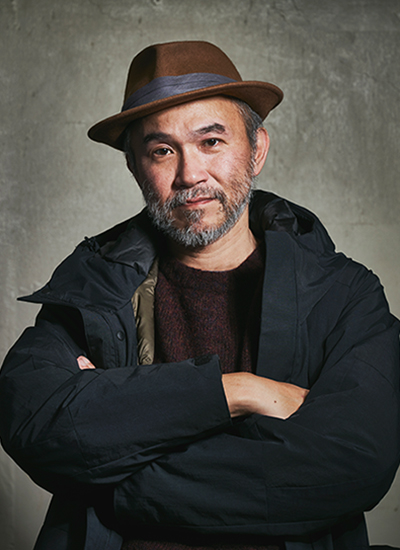
ⒸIkeda Masayuki
Aoyama Shinji
Director / Screenwriter
Aoyama Shinji was born in Kitakyushu, Fukuoka Prefecture, Japan, 1964. In 1996, he made his feature-length debut with Helpless, followed by such films as Two Punks (1996), An Obsession (1997) and Shady Grove (1999). In 2000, his Eureka was selected for competition at the 53rd Cannes Film Festival, where it won both the FIPRESCI Prize and Ecumenical Jury Prize. In 2000, he directed Roji-e: The Films Kenji Nakagami Left Out, a documentary about writer Nakagami Kenji; and in 2001, he was invited to compete at the Cannes Film Festival for the second consecutive year with his Desert Moon. Mike Yokohama: A Forest with No Name (2002) was a selection of the Berlin International Film Festival; and Lakeside Murder Case (2004), was his bold attempt at adapting a Higashino Keigo mystery into film. In 2005, his Eli, Eli, Lema Sabachthani? was invited to be screened in the Cannes Un Certain Regard; his Sad Vacation (2007) was nominated for the Orizzonti Award for Best Film at the Venice International Film Festival; 2011's Tokyo Koen earned him the Golden Leopard Special Jury Prize at the 64th Locarno Film Festival; and in 2013, his Backwater won the Boccalino Award at the 66th Locarno Film Festival. His latest work is Living in the Sky (2020), which was selected for the Busan International Film Festival.
"The older you are, the more you want something new." - This is a phrase from a hit song in post-war Japan, sung by film star Tsuruta Koji. Eight years ago, when I was invited to be a juror at several film festivals, I remembered the song. My feeling differed slightly from the song's meaning, but I felt that films all over the world have become the same. I wanted each of them to be different. Since then, I have turned down a few jury offers, because an old person like me is not needed there anymore. I became a film school teacher, lost my parents, got sick, and quit teaching. Now that I am cured of my illness, what I need is a new encounter and dialogue to begin my life with film once again. I want joy. I want to be surprised. That's my sincere hope.
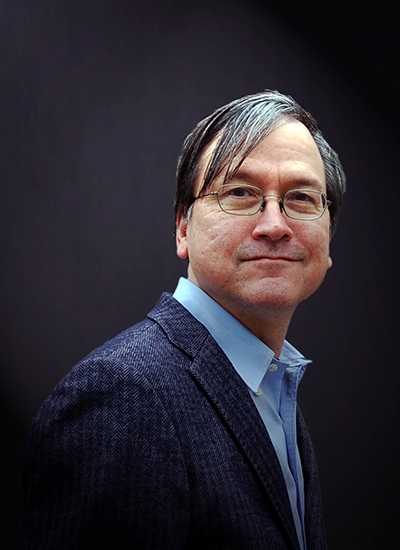
Chris Fujiwara
Film Critic / Programmer
Chris Fujiwara has written and edited several books on cinema, including "Jacques Tourneur: The Cinema of Nightfall", "The World and Its Double: The Life and Work of Otto Preminger", and "Jerry Lewis". He was the editor of "Undercurrent", the film-criticism magazine of FIPRESCI (International Federation of Film Critics) and a film critic for the "Boston Phoenix", and he has contributed to numerous magazines, journals, and newspapers. He has lectured on film history and film aesthetics at various universities. Formerly artistic director of Edinburgh International Film Festival, he has recently developed film programs for other institutions and has organized and served as a mentor for workshops on film criticism and film programming. He is currently working on a theoretical and analytical study of ruptures that occurred in world cinema in the late 1950s and early 1960s.
The most important work of film festivals is not just to give a prestigious showcase to films that are guaranteed to find a large audience. A film festival, by creating the conditions for a better appreciation of cinema, should champion interesting films that might usually be expected to reach only a small audience. Above all, a film festival should serve as a meeting point for the many different continuities and communities by which filmmaking, film viewing, and film criticism are all sustained. I look forward with hope and excitement to seeing how the new programming director, Ichiyama Shozo-san, together with the TIFF team, will accomplish that task this year.
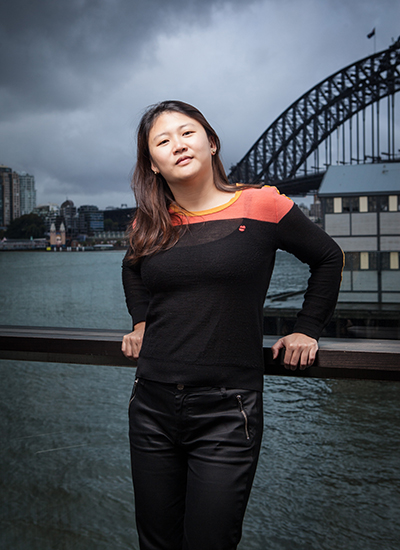
ⒸFabrizio Maltese
Lorna Tee
Producer / Curator
Lorna Tee is a film producer and curator, dividing her time between Asia and Europe. She has worked for Focus Films (Hong Kong), Variety (USA), Irresistible Films (Hong Kong/ Japan), and also film festivals like Berlinale and CinemAsia Film Festival. She is the co-founder and Head of Festival Management for the International Film Festival & Awards Macao until 2020. Selected filmography includes The Beautiful Washing Machine, Rain Dogs, Crazy Stone, My Mother Is a Bellydancer, The Shoe Fairy, At the End of Daybreak, Lover's Discourse, Come Rain, Come Shine, Postcards from the Zoo and Mrs K. She produces with her production company Paperheart, and with Amsterdam-based company, An Original Picture. She mentors and lectures with film training programmes / labs, primarily with emerging filmmakers, plus supports various international film institutions and film funds in multiple capacities. She is currently the year-round programming consultant for Cinematheque Passion in Macao.
Film festivals are a celebration of storytelling in cinema and in friendship ― in meeting old friends and getting to know new ones. There is a certain sense of homecoming when I am at a film festival, as people gathered are part of a community passionate about films. Crossing paths with the most unexpected people, indulging in local culture, and building bonds that would last a lifetime, is core to why film festivals rejuvenate me as much as cinema does. Being in Tokyo for the film festival is being home again. Bring on the films, friends, food and family. Arigato.
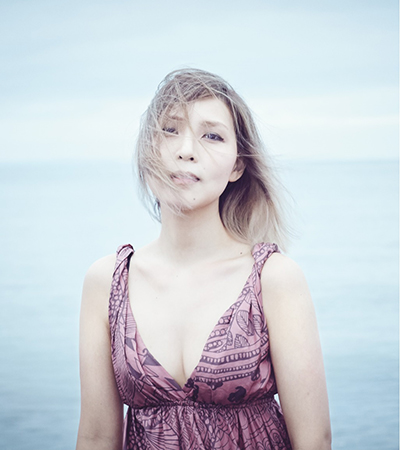
Sebu Hiroko
Film Score Composer
Born in Katsushika-ku, Tokyo. Sebu began composing at the age of four, and by age six, had decided to become a film score composer. As a student, she gained various opportunities as a performer at such events including the 1200th anniversary of the Heian Capital in Kyoto, and the Kyoto Conference on Global Warming ceremony. She then moved to France where she enrolled in the Ecole Normale de Musique de Paris to study film composition and would later graduate with honors. Sebu started her career as a film score composer with Yoshida Koki's Family X (2011) and remains in high demand today with offers coming in from numerous directors. Recent works as composer and music producer include Ishikawa Kei's Arc (2021), Yoshida Keisuke's Intolerance (2020), and Matsunaga Daishi's upcoming Pure Japanese (2022). Sebu is also a performer who has made appearances in a Google Chrome ad and ISSEY MIYAKE Paris Fashion Week. She has also worked on arrangements for "Final Fantasy Ⅶ Remake". Her talent also shines through in her collaboration with artists such as Mr. Children and Moriyama Naotaro. She actively supports the younger generation through her lectures at Waseda University's "Masters of Cinema" and The Film School of Tokyo.
Since my childhood I have loved films more than anything, and have thought of myself as "cinema-cian"
rather than a musician even while majoring in music. I eagerly wanted to be a film music composer as
soon as possible when I was in an elementary school. Cinema has been in the core of my life since that
time.
I was at first very surprised when I was asked to be a jury member because I've never been close to a
prize competition. I felt delighted, however, that TIFF recognized my passion and love for cinema from
the films I have worked on, and I decided humbly to accept the responsibility. I cannot wait to see
what kind of films I will encounter.
Members of the Asian Future Jury
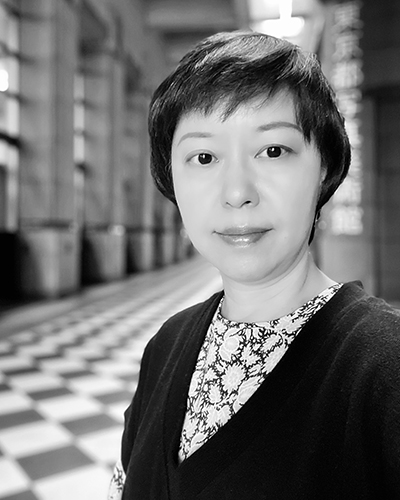
Han Yanli
The University of Tokyo, Graduate School of Arts and Sciences, Professor
Han earned her doctorate from Kyoto University in 2006 and currently serves as professor at the Graduate School of Arts and Sciences at the University of Tokyo. She specializes in Chinese language cinema and culture and representation studies. Books written by Han include “Beyond National Cinema: Overseas Chinese Cinema and National Identity” (2014). She has co-written books including "Otokotachi no Kizuna, Asia Eiga: Homosocial na Yokubou (Bonds Between Men, Asian Cinema: Homosocial Desire)" (2004) and "Cultural Politics around East Asian Cinema" (2019).
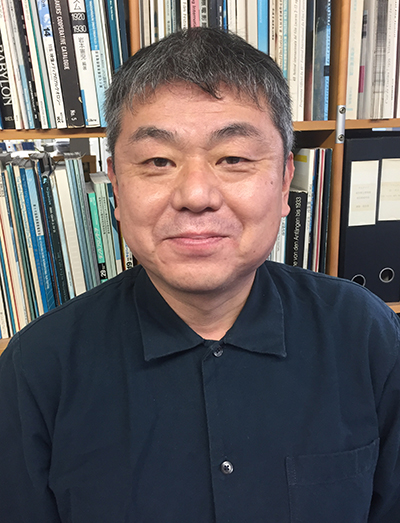
Hojo Masato
Eurospace Manager
Born in Shizuoka City. Involved in independent screenings since his student years, Hojo joined the Ounichi Kyokai (Euro-Japan Association) in 1985, an entity later to become Eurospace. He initially worked as a projectionist, then transitioned to theater manager and bookings in 1989. Hojo served as a member of the jury for the Skip City International D-Cinema Festival Japanese Film Competition in 2018. As of 2021, he serves as Deputy Director of the Japan Community Cinema Center.
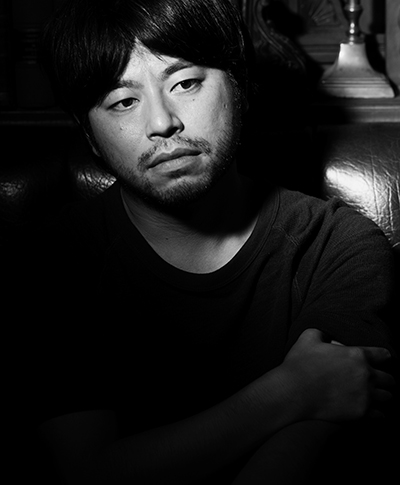
Ishii Yuya
Film Director
Ishii attended the Osaka University of Arts and his graduation film
Bare-assed Japan (05) was awarded the Grand Prix at the PIA Film Festival.
In 2008, the Rotterdam Film Festival held special screenings for four of his films. In 2013, He was
awarded Best Picture and Best Director at the 37th Japan Academy Prize for The Great Passage. His
2017 film The Tokyo Night Sky Is Always the Densest Shade of Blue garnered him first place on
Kinema Jumpo’s annual Best Japanese Film list, and Best Director at the Asian Film Awards.
Amazon Prime Video Take One Award Jury
Yukisada Isao (Filmmaker)
Watanabe Makiko (Actress)
Isomi Toshihiro (Art Director)
Andrijana Cvetkovik (Former ambassador of the Republic of North Macedonia to Japan and Film
director)
Erika North (Head of Amazon Originals Asia Pacific, Amazon Studios)






